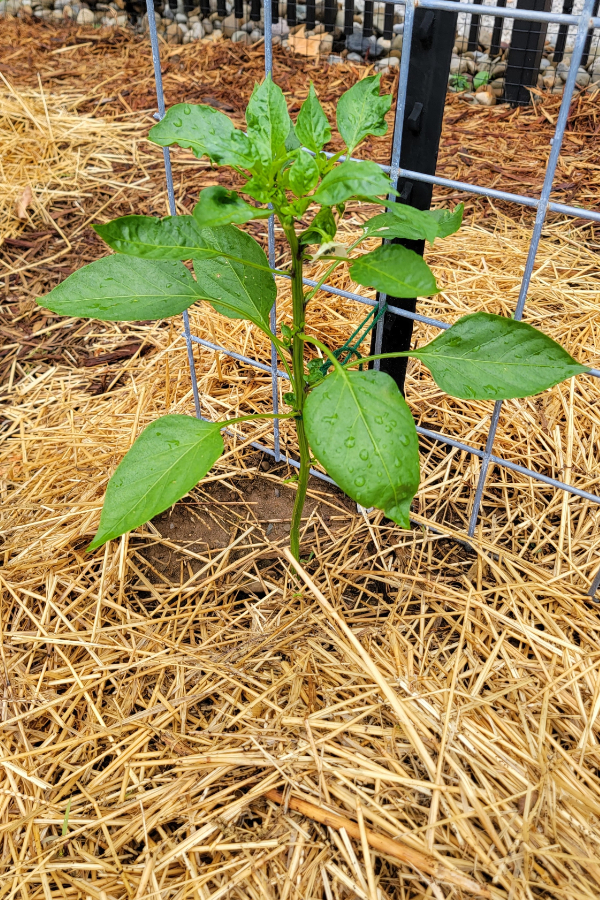Explore the Best Fertilizers for Peppers and Enhance Your Yard's Yield
Explore the Best Fertilizers for Peppers and Enhance Your Yard's Yield
Blog Article
Organic Vs. Synthetic Fertilizers: Which Is Best for Nurturing Healthy And Balanced Pepper Plants?
In the realm of supporting healthy pepper plants, the selection in between natural and synthetic fertilizers stands as a critical choice with far-reaching implications. While both options purpose to give vital nutrients to support plant development, the subtleties of their influence on the soil, plant wellness, and the setting trigger a discussion that mirrors throughout the horticulture community. Understanding the unique benefits and potential pitfalls of each fertilizer type is essential for pepper growers looking for to enhance their yields while preserving an eco-conscious and sustainable strategy.
Benefits of Organic Plant Foods
Organic fertilizers offer an environmentally-friendly and sustainable approach to nourishing pepper plants, offering important nutrients without the usage of synthetic chemicals. These all-natural fertilizers are originated from organic resources such as compost, manure, bone dish, and seaweed, advertising dirt wellness and biodiversity. Unlike artificial plant foods, natural alternatives release nutrients gradually, making certain a steady and balanced supply for pepper plants to flourish.
One considerable advantage of organic plant foods is their ability to boost dirt framework and water retention. By improving dirt health, natural plant foods promote helpful microbial task, which aids in nutrient uptake by pepper plants. Additionally, natural plant foods lower the risk of chemical run-off, safeguarding water sources from air pollution and securing the environment.
In addition, organic plant foods contribute to lasting dirt fertility by promoting the development of helpful dirt organisms. These microorganisms help damage down raw material, releasing nutrients in a type that is conveniently available to pepper plants. best fertilizers for peppers. By fostering a healthy dirt environment, organic fertilizers support sustainable pepper farming practices that profit both plants and the atmosphere
Downsides of Synthetic Fertilizers
Artificial plant foods, unlike their natural counterparts, posture different disadvantages when utilized to nurture pepper plants, impacting both plant health and environmental sustainability. One significant downside of synthetic fertilizers is their propensity to leach nutrients from the soil rapidly. This fast leaching can cause nutrition discrepancies in the dirt, creating plants to struggle with toxicities or deficiencies. Additionally, artificial plant foods can hurt valuable soil organisms, such as earthworms and advantageous microorganisms, interfering with the soil ecosystem's equilibrium.
Furthermore, the overuse of synthetic fertilizers can add to water contamination. Excess plant foods not taken in by plants can remove into water bodies, resulting in eutrophication, where algae flowers deplete oxygen levels in the water, hurting marine life. Synthetic fertilizers are typically obtained from non-renewable sources, such as fossil gas, contributing to carbon emissions and environmental destruction during their manufacturing.
Nutrient Absorption Comparison
Efficient nutrient absorption plays an essential role in the general health and wellness and development of pepper plants. When contrasting natural and artificial fertilizers in regards to nutrient absorption, natural plant foods have the benefit of supplying a much more well balanced and slow-release source of nutrients (best fertilizers for peppers). Organic plant foods have a variety of macro and micronutrients that are not just helpful for the plants however additionally promote healthy and balanced soil microbial task, which helps in nutrient uptake. On the various other hand, artificial plant foods usually supply a quick launch of nutrients, which can cause leaching and drainage, causing reduced nutrient absorption prices by the plants.
In addition, organic plant foods boost soil framework and water retention capability, enabling pepper plants to access nutrients more efficiently. This enhanced soil high quality promotes origin development, enabling better nutrient absorption. Synthetic fertilizers, although initially boosting plant growth as a result of their high nutrient focus, might prevent long-term nutrient absorption by degrading soil wellness gradually.
Ecological Effect Factors To Consider

On the various other hand, synthetic plant foods, although commonly more quickly offered and concentrated to plants, can have destructive impacts on the environment if click here now not used correctly (best fertilizers for peppers). Their manufacturing requires high energy inputs, bring about greenhouse gas emissions and adding to environment change. Additionally, the runoff of excess synthetic plant foods can pollute water resources, leading to eutrophication and hurting water ecological communities.
Finest Fertilizer Practices for Peppers
To achieve this, it is essential to adhere to finest plant food practices tailored to the certain demands of pepper plants. One important practice is to perform a dirt test before applying any type of fertilizers.
An additional crucial practice is to fertilize pepper plants at the correct time. Typically, peppers profit from obtaining plant food at growing and then once again when they start to blossom. Over-fertilizing can cause nutrient inequalities and damage the plants, so it is vital to follow suggested application rates.
Additionally, picking a well balanced plant food with an NPK proportion that matches pepper plants' demands is basic. Organic fertilizers, such Recommended Reading as garden compost or manure, can be outstanding choices as they launch nutrients slowly and improve dirt structure gradually. Synthetic plant foods can give a quick nutrient increase when required. Eventually, incorporating artificial and natural fertilizers deliberately can assist support healthy pepper plants while decreasing ecological effect.
Conclusion

Organic fertilizers offer an environmentally-friendly and sustainable strategy to nourishing pepper plants, offering important nutrients without the usage of synthetic chemicals. Unlike artificial fertilizers, natural alternatives release nutrients gradually, ensuring a well balanced and steady supply for pepper plants to flourish.
Artificial plant foods, in contrast to their natural equivalents, posture numerous drawbacks when utilized to nurture pepper plants, influencing both plant health and wellness and environmental sustainability. When comparing synthetic and organic fertilizers in terms of nutrient absorption, natural fertilizers have the benefit of supplying an extra well balanced and slow-release source of nutrients.Additionally, reference organic fertilizers boost soil structure and water retention capacity, enabling pepper plants to gain access to nutrients more effectively.
Report this page